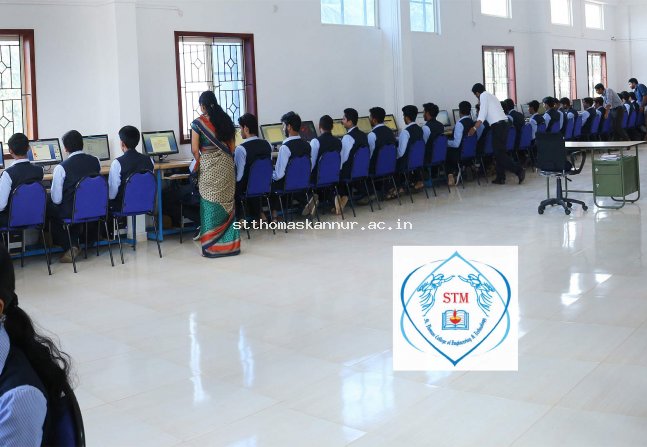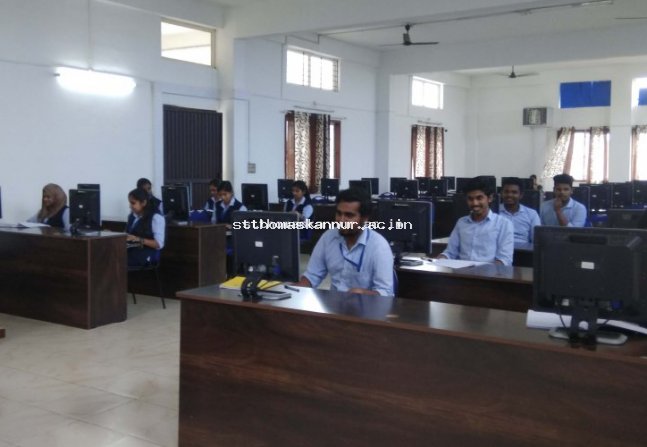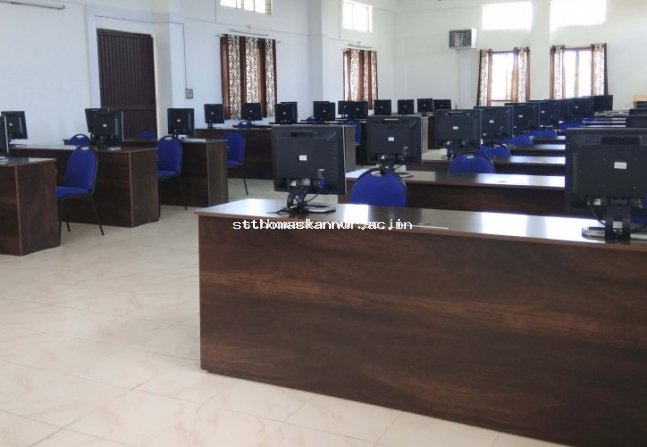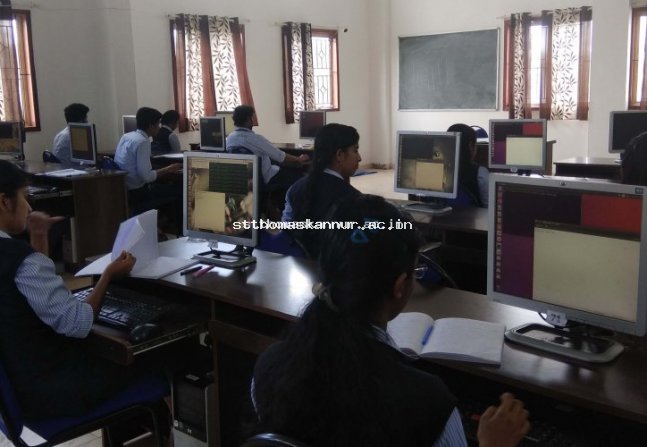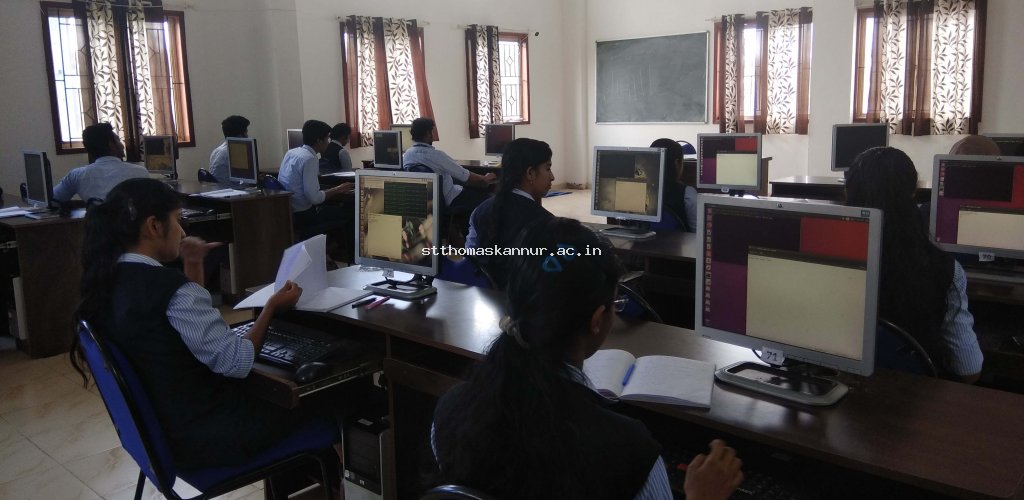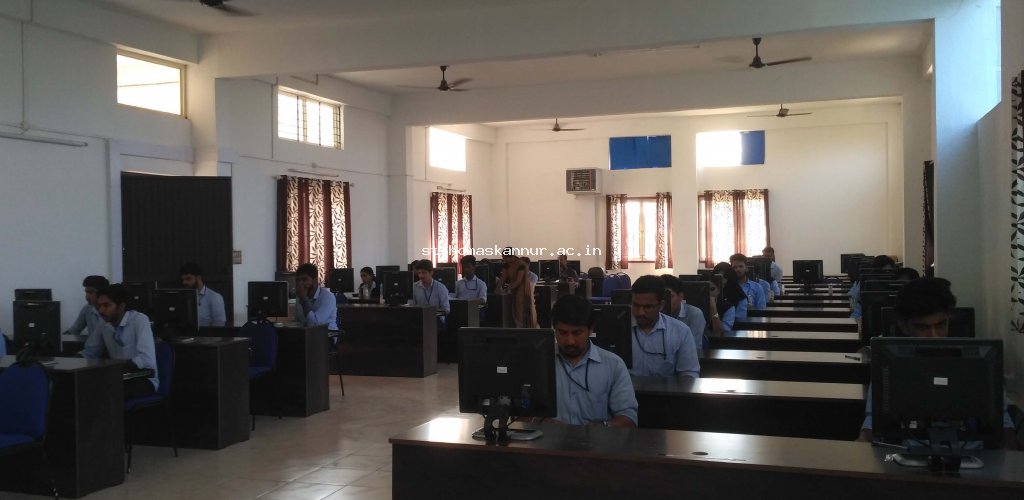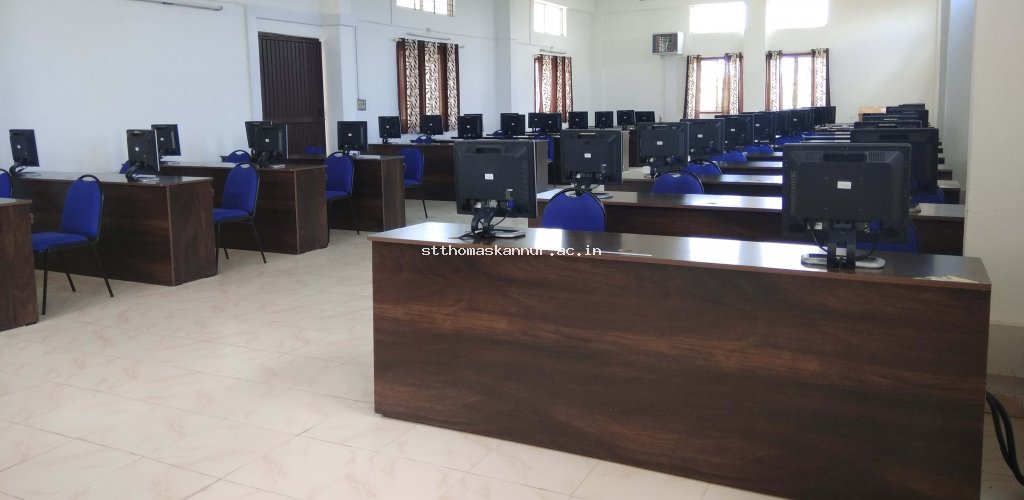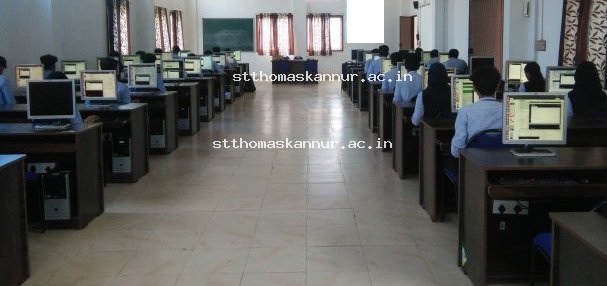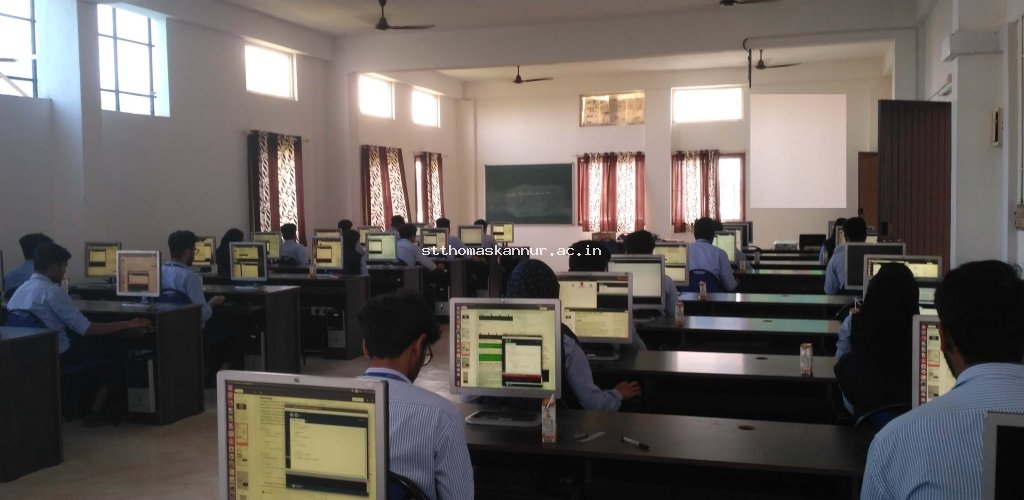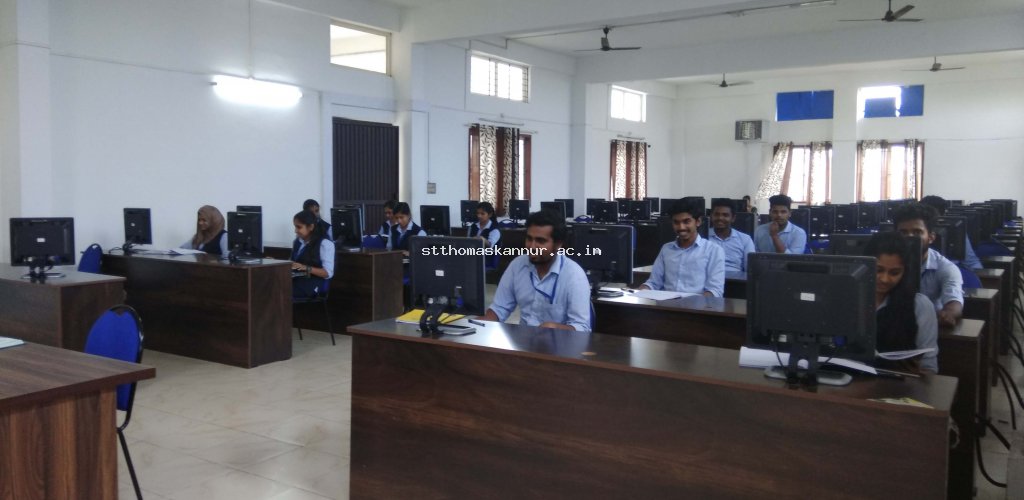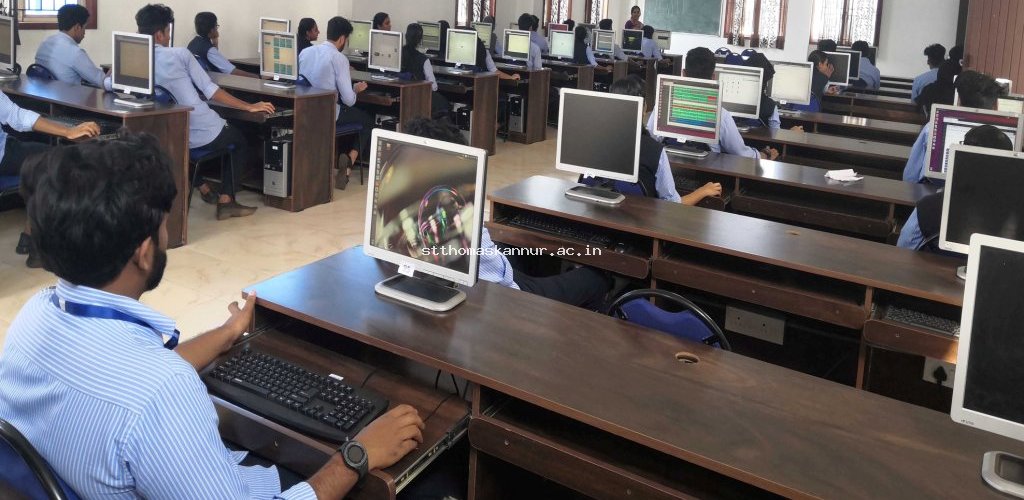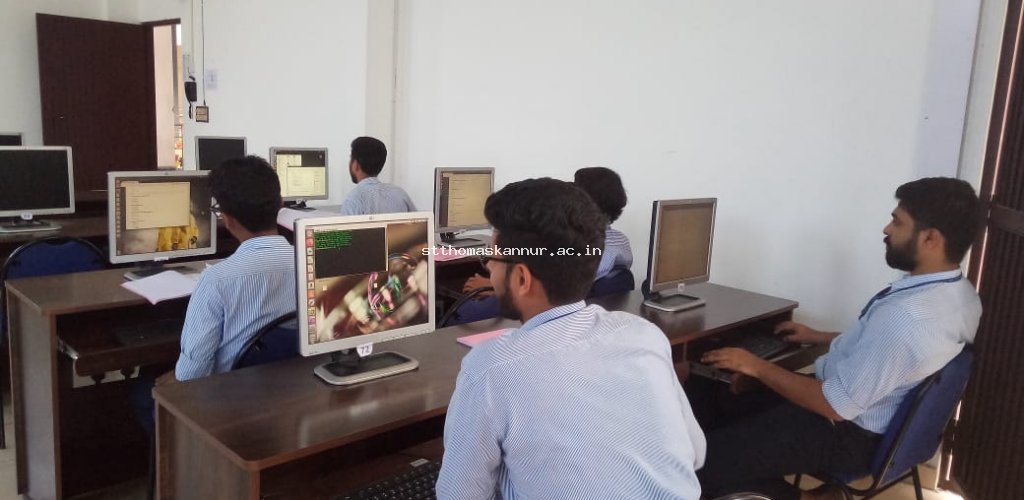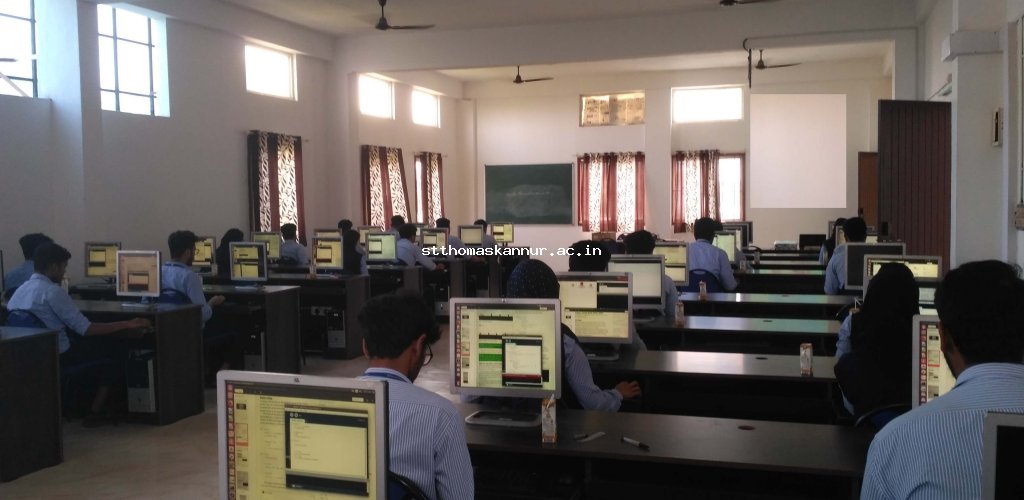The program in the field of Computer Science is a never ending process. The Computer Science Department is designed to keep up to this pace. Realizing the importance of rapid advancement in the information technology sector, all the labs are equipped with the network structure and are updated and upgraded as per the requirement and demand of industries.
Vision
To produce globally competent and socially responsible Computer Science Engineers.
Mission
M1 Professional Skills: Provide students with opportunities to become industry- ready professionals and entrepreneurs through analytical learning.
M2 Lifelong Learning: Maintain a lifelong learning attitude and stay current in their profession to foster personal and organizational development.
M3 Engage with Society: Encourage students to focus on sustainable solutions, to improve quality of life and social welfare.
PROGRAM EDUCATIONAL OBJECTIVES (PEO)
PEO1 Professional Practices: Apply engineering practices required for Software development, Hardware development and Embedded systems.
PEO2 Intrapreneurial Skills: Exhibit innovation, Self – confidence and teamwork skills in the organization and society.
PEO3 Lifelong Learning: Offer continuing education programmes in the emerging areas for the knowledge upgradation of stakeholders.
Program Specific Outcomes (PSO)
PSO1: Computer Science and Engineering students can analyse, design, develop, test and apply management principles, mathematical foundations in the development of computational solutions, making them experts in designing computer hardware and software.
PSO2: Develop their skills to solve problems in the broad area of programming concepts and appraise environmental and social issues with ethics and manage different projects in interdisciplinary fields.
Program Outcomes (PO)
Engineering Graduates will be able to:
PO1 Engineering knowledge: Apply the knowledge of mathematics, science, engineering fundamentals, and an engineering specialization to the solution of complex engineering problems.PO2 Problem analysis: Identify, formulate, review research literature, and analyze complex engineering problems reaching substantiated conclusions using first principles of mathematics, natural sciences, and engineering sciences.
PO3 Design/development of solutions: Design solutions for complex engineering problems and design system components or processes that meet the specified needs with appropriate consideration for the public health and safety, and the cultural, societal, and environmental considerations.
PO4 Conduct investigations of complex problems: Use research-based knowledge and research methods including design of experiments, analysis and interpretation of data, and synthesis of the information to provide valid conclusions.
PO5 Modern tool usage: Create, select, and apply appropriate techniques, resources, and modern engineering and IT tools including prediction and modeling to complex engineering activities with an understanding of the limitations.
PO6 The engineer and society: Apply reasoning informed by the contextual knowledge to assess societal, health, safety, legal and cultural issues and the consequent responsibilities relevant to the professional engineering practice.
PO7 Environment and sustainability: Understand the impact of the professional engineering solutions in societal and environmental contexts, and demonstrate the knowledge of, and need for sustainable development.
PO8 Ethics: Apply ethical principles and commit to professional ethics and responsibilities and norms of the engineering practice.
PO9 Individual and team work: Function effectively as an individual, and as a member or leader in diverse teams, and in multidisciplinary settings.
PO10 Communication: Communicate effectively on complex engineering activities with the engineering community and with society at large, such as, being able to comprehend and write effective reports and design documentation, make effective presentations, and give and receive clear instructions.
PO11 Project management and finance: Demonstrate knowledge and understanding of the engineering and management principles and apply these to one’s own work, as a member and leader in a team, to manage projects and in multidisciplinary environments.
PO12 Life-long learning: Recognize the need for, and have the preparation and ability to engage in independent and life-long learning in the broadest context of technological change.
DEPARTMENT ADVISORY BOARD
Er. Rijo Thomas Jose MANAGEMENT REPRESENTATIVE
CEO, St. Thomas College of Engineering
Sivapuram, Mattanur, KannurDr. Shinu Mathew John CHAIRMAN
Principal, St. Thomas College of Engineering
Sivapuram, Mattanur, KannurProf. Thomas Varghese ACADEMIC MEMBER
Associate Professor, Dept. of IT,
Amal Jyothi College of Engineering, Kottayam.
email id : thomasvarghese@amaljyothi.ac.in
Dr. N S Sreekanth ACADEMIC MEMBER
Associate Professor & Head ,Dept of Information Technology
Kannur University
email id: nssreekanth@kannuruniv.ac.inDr. Sreekesh Namboodiri T CONVENER
Associate Professor & Head ,CSE
St. Thomas College of Engineering
Sivapuram, Mattanur, Kannur
email id: hodcs@stthomaskannur.ac.inMs. Dinla O K CO- CONVENER
Assistant Professor, CSE
St. Thomas College of Engineering
Sivapuram, Mattanur, Kannur
email id: dinlaok@stthomaskannur.ac.in
ph no: 9744093662Mr. Deepaklal K B INDUSTRY EXPERT
Team Lead, IExceed Technology Solutions, Bangalore
email id: iam@deepaklal.online
ph no: 8547580055
Mr. Sharvin K INDUSTRY EXPERT
Application Security Architect, Availity, Manyata Tech Park
Bangalore
email id: sharvinarsh@gmail.comMr. Sreerag M M ALUMNI
Software Engineer, Experion Technologies (India) Private Ltd.
Infopark SEZ, Kakkanad, Kochi
email id: sreeragmmundayadan@gmail.com
ph no: 7559800294
PROGRAM ASSESSMENT COMMITTEE
Dr. Sreekesh Namboodiri T (HOD CSE Dept) - Chairperson
Mr. Jithin S (Assistant professor CSE Dept) -Program Coordinator/Faculty Advisor
Ms.Anju G(Assistant professor CSE Dept) - DQAC Coordinator/Faculty Advisor
Ms.Saritha Narayanan (Assistant professor CSE Dept) - Faculty Advisor
Ms. Anu C (Assistant professor CSE Dept) - Senior Faculty Member/Faculty Advisor
Ms. Vaishakhi V K (Assistant professor CSE Dept) - Faculty Advisor
Ms. Dinla O K (Assistant professor CSE Dept) - Faculty Advisor
Ms. Sandra C M (Student-2021 2025 batch) - Student Representative
Major Recruiters
Central and State Govts, Wipro, TCS, UST Global, CTS, HCL, Alliance Corn Hill
Special Interest Groups
The Department has following special interest groups to promote various research and development activities
Image Processing, AI & Data Science
Promoters: Ms. Anju G, Ms. Dinla O K, Ms. Navya N C
Cyber Security Essentials, Networking, Linux Mastery & Penetration Techniques
Promoters: Dr. Sreekesh Namboodiri T, Mr. Jithin S, Ms. Anu C, Ms. Saritha Narayanan
Web Development
Promoters: Ms. Vaishakhi V K, Ms. Vibha M P

